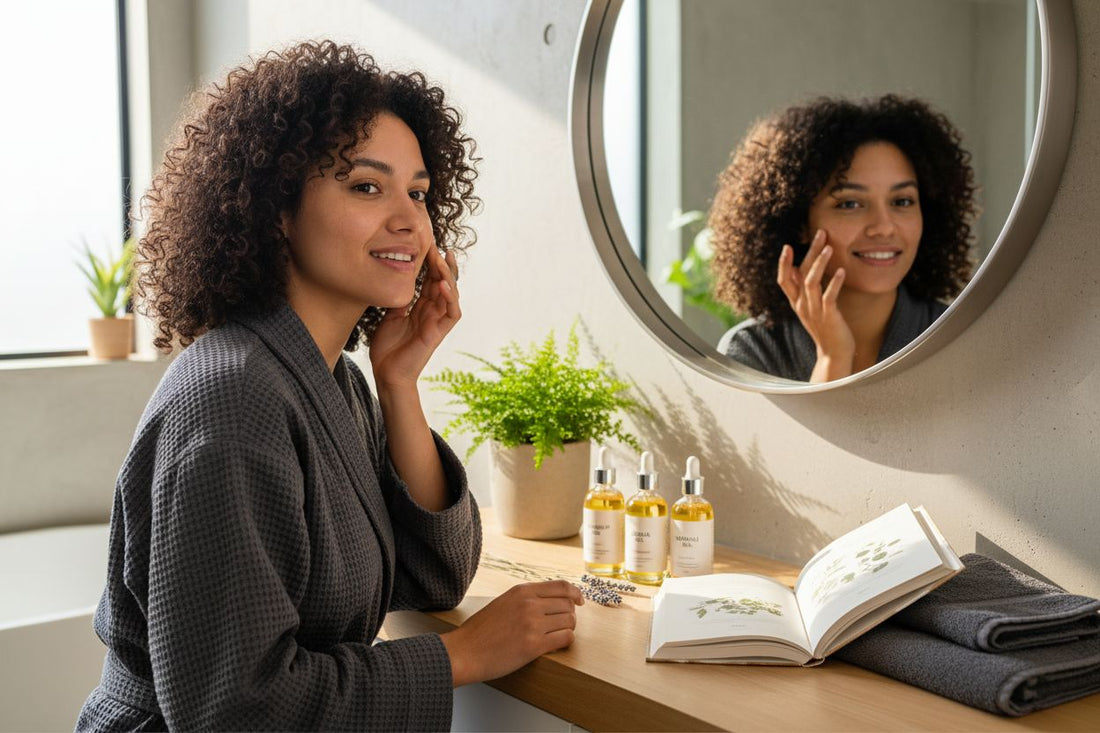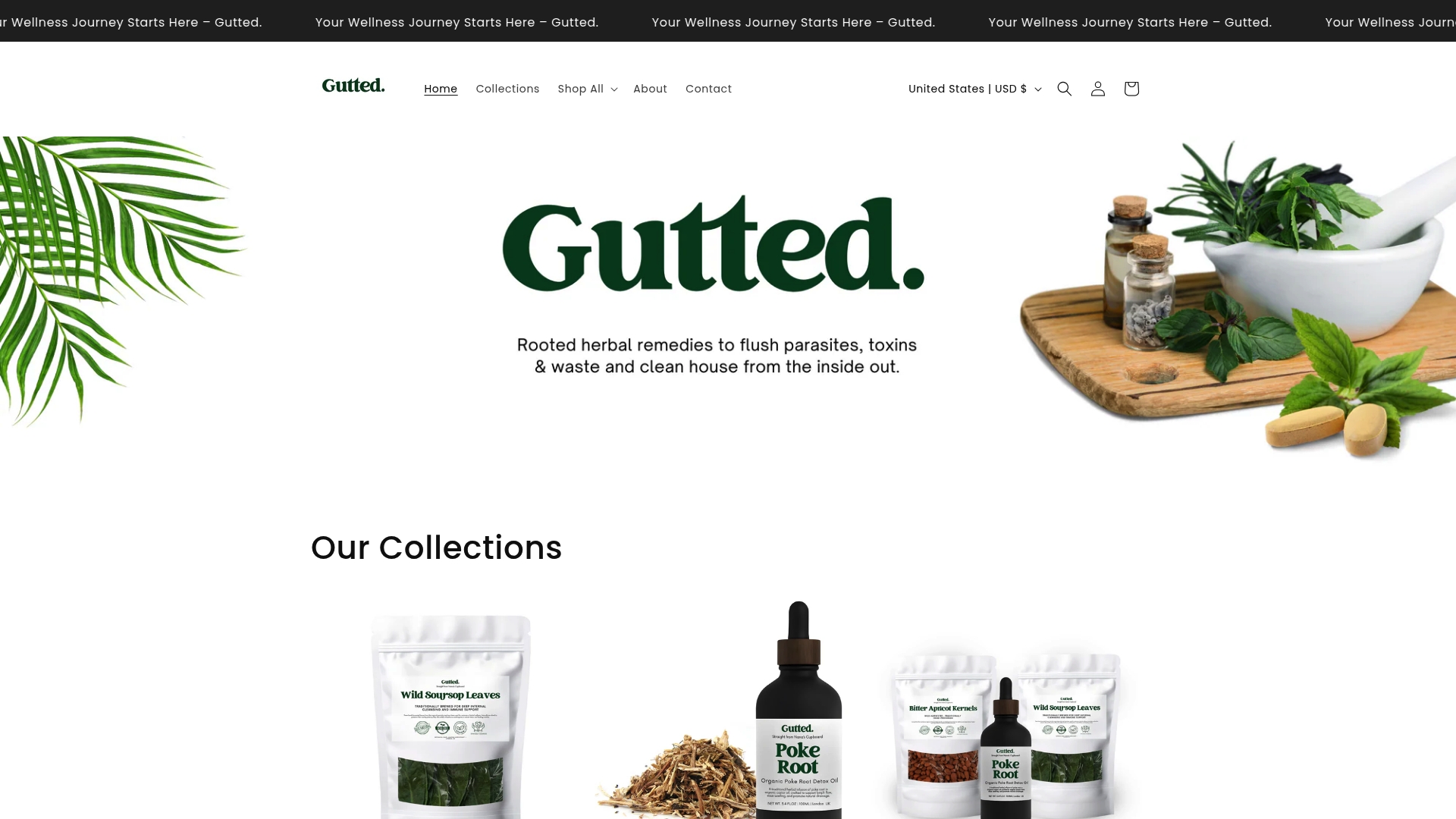
7 Botanical Oils for Skin: Natural Solutions for You
Botanical oils have captured attention for their natural approach to skincare, promising glowing complexions without harsh chemicals. Yet most people do not realise that these oils can do far more than hydrate or soften. In fact, research shows botanical oils can significantly improve skin barrier function and support natural healing processes. The real surprise is that their unique molecular structures actually allow them to work in harmony with your own skin, unlocking benefits you simply cannot get from synthetic creams.
Quick Summary
| Takeaway | Explanation |
|---|---|
| Choose oils based on skin type. | Different oils work better for specific skin types; assess yours for optimal results. |
| Patch test before full application. | Conducting a patch test helps prevent allergic reactions by identifying sensitivities to oils. |
| Incorporate oils into daily routines. | Consistent use maximises benefits; align oil application with skin’s natural rhythms for effectiveness. |
| Opt for high-quality, organic oils. | Select cold-pressed, unrefined oils to ensure maximum nutritional integrity and purity in skincare. |
| Be aware of potential allergies. | Understand personal sensitivities and genetic factors that may affect how your skin reacts to botanical oils. |
1: Understanding Botanical Oils and Their Benefits
Botanical oils represent a powerful natural approach to skincare, offering therapeutic benefits that go far beyond basic moisturisation. These concentrated plant extracts harness the healing potential of nature, providing holistic solutions for various skin concerns. Our guide on botanical wellness highlights how these oils can transform your skincare routine.
At their core, botanical oils are pure, unrefined extracts derived directly from plants through careful extraction methods like cold pressing or steam distillation. These processes preserve the delicate molecular structures and potent compounds that make these oils so remarkable. Unlike synthetic skincare products, botanical oils contain complex combinations of fatty acids, vitamins, minerals, and antioxidants that work synergistically with human skin.
Key characteristics that distinguish botanical oils include:
- Biocompatibility with human skin cellular structures
- Natural preservation of active plant compounds
- Ability to penetrate deeper skin layers
- Minimal processing and chemical intervention
According to research from the Journal of Cosmetic Dermatology, botanical oils can significantly improve skin barrier function, reduce inflammation, and support natural healing processes. Their molecular composition allows them to mimic the skin’s natural lipid structure, enabling deeper and more effective absorption compared to conventional moisturisers.
Understanding the nuanced benefits of botanical oils requires recognising their versatility. Each oil carries unique properties derived from its botanical origin. Some specialise in hydration, others in reducing inflammation, and some target specific skin conditions like acne, ageing, or sensitivity. The therapeutic potential lies not just in individual oil properties but in their holistic interaction with human physiology.
By embracing botanical oils, individuals can move beyond conventional skincare towards a more natural, intelligent approach to skin health and rejuvenation.
2: Top 3 Botanical Oils for Skin Health
Navigating the world of botanical oils reveals three exceptional performers that stand out for their remarkable skin health benefits. These powerhouse oils offer unique properties that address diverse skin concerns with natural precision. Our lymphatic support collection showcases the transformative potential of targeted botanical extracts.
Rosehip Seed Oil emerges as a true skin rejuvenation champion. Packed with vitamin A and essential fatty acids, this oil penetrates deeply to stimulate cellular regeneration. Research from the International Journal of Molecular Sciences indicates its exceptional ability to reduce hyperpigmentation, minimise fine lines, and improve overall skin texture.
Key strengths of rosehip seed oil include:
- Powerful regenerative properties
- High concentration of vitamin C
- Natural protection against environmental damage
- Supports collagen production
Jojoba Oil represents another extraordinary botanical solution. Its molecular structure remarkably mirrors human sebum, allowing unprecedented skin compatibility. This unique characteristic enables jojoba oil to balance natural oil production, making it ideal for both dry and oily skin types. The oil’s anti-inflammatory properties help calm irritated skin and reduce redness.
Tamanu Oil completes our top three with its extraordinary healing capabilities. Originating from the South Pacific, this oil boasts potent regenerative properties that accelerate wound healing and skin repair. According to clinical studies, tamanu oil demonstrates significant potential in treating scars, stretch marks, and supporting skin recovery.
These botanical oils transcend traditional skincare approaches, offering intelligent, nature-derived solutions that work harmoniously with your body’s inherent healing mechanisms. By understanding and incorporating these powerful extracts, individuals can transform their skincare routine into a holistic wellness practice.
3: How to Choose the Right Botanical Oil for You
Selecting the perfect botanical oil requires a nuanced understanding of your skin’s unique characteristics and specific needs. Our lymphatic support collection provides personalised guidance for targeted skin wellness. Matching the right botanical oil demands careful consideration of multiple factors that extend beyond generic skincare recommendations.
Skin Type Assessment forms the foundational step in botanical oil selection. Different oils interact uniquely with various skin profiles. Understanding your skin’s inherent qualities allows for precise botanical intervention. Dermatological research from the American Academy of Dermatology suggests a tailored approach based on individual skin characteristics.
Key considerations for botanical oil selection include:
- Your specific skin type (oily, dry, combination, sensitive)
- Predominant skin concerns (acne, ageing, uneven texture)
- Potential allergies or sensitivities
- Climate and environmental factors
Molecular Compatibility plays a critical role in effective botanical oil absorption. Oils with smaller molecular structures penetrate skin layers more efficiently, delivering concentrated nutritional benefits. Lighter oils like jojoba and grapeseed work exceptionally well for oily or acne-prone skin, while richer oils such as avocado and rosehip provide intense hydration for dry or mature skin.
Purity and sourcing represent another crucial selection criterion. Opt for cold-pressed, unrefined oils that retain maximum nutritional integrity. Organic certification ensures absence of pesticides and chemical interventions, guaranteeing a pure botanical experience.
Patch testing remains an essential preliminary step. Apply a small amount of the chosen botanical oil to your inner forearm and observe for 24-48 hours for potential allergic reactions. This simple precaution prevents potential skin irritations and ensures a safe, personalised skincare approach.
Ultimately, choosing the right botanical oil is a journey of personal discovery, blending scientific understanding with intuitive self-knowledge.
4: The Importance of Carrier Oils in Skin Care
Carrier oils represent the unsung heroes of botanical skincare, providing essential support and enabling the safe application of potent essential oils. Our holistic wellness approach recognises the critical role these foundational oils play in effective skin treatment.
Carrier oils are pure, vegetable-based oils extracted from the fatty portions of plants, typically from seeds, kernels, or nuts. Unlike essential oils, which are highly concentrated and potentially irritating when applied directly to skin, carrier oils offer a gentle, nourishing medium for delivering therapeutic botanical compounds.
Key functions of carrier oils include:
- Diluting concentrated essential oils
- Preventing skin irritation
- Enhancing absorption of active ingredients
- Providing additional nutritional benefits
Research published in the International Journal of Molecular Sciences demonstrates that carrier oils are not mere passive vehicles but active contributors to skin health. Their complex molecular structures contain vitamins, minerals, and fatty acids that directly support skin regeneration and protection.
The molecular weight and absorption rate of carrier oils determine their effectiveness. Lighter oils like grapeseed and sweet almond penetrate quickly, making them ideal for oily or combination skin. Heavier oils such as avocado and castor provide deeper moisturisation, perfect for dry or mature skin types.
Choosing the right carrier oil involves understanding its specific properties. Some carrier oils offer additional therapeutic benefits beyond basic skin nutrition. Coconut oil exhibits antimicrobial properties, while rosehip seed oil supports collagen production and reduces hyperpigmentation.
Professional herbalists emphasise the importance of cold-pressed, unrefined carrier oils. These minimally processed oils retain maximum nutritional integrity, ensuring that the skin receives pure, unadulterated botanical support. Organic certification further guarantees the absence of pesticides and chemical interventions.
By recognising carrier oils as intelligent, active skincare components, individuals can transform their botanical oil application from simple moisturisation to a sophisticated, holistic wellness practice.
5: Tips for Applying Botanical Oils Effectively
Mastering botanical oil application transforms these powerful plant extracts from simple skincare products into sophisticated wellness tools. Our lymphatic support protocols emphasise precision and intentionality in botanical oil use.
Timing and preparation are critical factors in maximising botanical oil efficacy. Research from the Journal of Cosmetic Dermatology suggests that skin absorption peaks during specific physiological windows, making application technique as important as the oil itself.
Essential guidelines for botanical oil application include:
- Clean skin before application
- Use minimal quantities (2-3 drops)
- Warm oil between palms before use
- Apply using gentle upward motions
- Allow complete absorption before additional skincare steps
Temperature management plays a crucial role in botanical oil effectiveness. Oils applied at body temperature penetrate more efficiently, activating their molecular structures and enhancing nutrient delivery. Gently warming oils between palms before application creates an optimal absorption environment.
Layering techniques require strategic consideration. Lighter molecular weight oils should be applied first, followed by heavier, more viscous botanical extracts. This approach ensures maximum penetration and prevents barrier interference. For instance, a light rosehip seed oil works beautifully as a base layer, with richer tamanu oil applied subsequently.
Consistent application frequency matters more than volume. Most botanical oils deliver optimal results when used consistently 2-3 times weekly, allowing skin time to integrate and respond to their therapeutic compounds. Nighttime application maximises the body’s natural regenerative processes.
Patch testing remains fundamental. Even with high-quality botanical oils, individual skin responses vary. Always test a small area 24-48 hours before full facial or body application to ensure compatibility and prevent potential allergic reactions.
Ultimately, botanical oil application is an intuitive practice blending scientific understanding with personal body awareness. Approach each application as a mindful, healing ritual, listening to your skin’s unique responses and adjusting accordingly.
6: Integrating Botanical Oils into Your Daily Routine
Transforming botanical oils from occasional treatments to consistent wellness practices requires strategic, mindful integration. Our holistic wellness protocols emphasise creating sustainable, personalised skincare approaches that honour your body’s unique rhythms.
Circadian rhythm alignment represents a sophisticated approach to botanical oil application. Research published in the International Journal of Molecular Sciences demonstrates that skin’s absorption and regenerative capacities fluctuate throughout the day, making timing crucial for maximising botanical oil benefits.
Strategic integration considerations include:
- Morning hydration and protection
- Evening cellular repair and regeneration
- Seasonal adaptation of oil selections
- Individual skin microbiome support
Personalised layering techniques elevate botanical oil usage beyond simple moisturisation. Begin with lighter, water-soluble oils that penetrate quickly, followed by richer, more viscous botanical extracts. This approach ensures maximum nutrient absorption and creates a protective, nourishing skin barrier.
Consider creating dedicated skincare moments that transform routine into ritual. Morning applications might focus on protective, antioxidant-rich oils like rosehip or grapeseed, which shield skin from environmental stressors. Evening routines can prioritise regenerative oils such as tamanu or poke root, supporting cellular repair during the body’s natural healing cycles.
Seasonal adaptations are crucial. Summer demands lighter, faster-absorbing oils that prevent congestion, while winter requires deeper, more nourishing botanical extracts that combat dryness and support skin barrier function. Listen to your skin’s changing needs and adjust your botanical oil selection accordingly.
Incorporating botanical oils extends beyond facial application. Consider whole-body wellness approaches, using targeted oils for specific concerns like lymphatic support, muscle tension, or stress relief. This holistic perspective transforms botanical oils from mere skincare products into comprehensive wellness tools.
Remember that consistency trumps perfection. Start with small, manageable integrations, allowing your body to adapt and respond to these powerful plant-based interventions.
7: Essential Precautions and Allergies to Consider
Navigating botanical oils requires a sophisticated understanding of potential interactions and individual sensitivities. Our wellness guidance emphasises proactive, informed approaches to natural skincare.
Allergic reactions represent the most critical consideration when exploring botanical oils. Clinical research from the American Contact Dermatitis Society reveals that even natural substances can trigger significant immune responses, making careful introduction paramount.
Key precautionary steps include:
- Comprehensive patch testing before full application
- Consulting healthcare professionals with pre-existing conditions
- Understanding personal genetic predispositions
- Monitoring skin responses meticulously
Cross-reactivity potential demands particular attention. Individuals with known plant allergies might experience unexpected responses to certain botanical oils. For instance, those allergic to ragweed could potentially react to chamomile or calendula oils, creating complex immunological interactions.
Genetic factors significantly influence botanical oil tolerance. Certain genetic variations impact how individuals metabolise and respond to plant-based compounds. Individuals with specific enzyme deficiencies or autoimmune conditions might require more nuanced botanical interventions.
Medication interactions represent another crucial consideration. Some botanical oils can potentially modify pharmaceutical absorption or efficacy. Blood-thinning medications, hormonal treatments, and immunosuppressants may interact unexpectedly with concentrated plant extracts.
Pregnancy and breastfeeding introduce additional complexity. Hormonal changes and heightened immune sensitivity necessitate extra caution. Certain botanical oils might stimulate uterine contractions or pass through breast milk, requiring specialised medical consultation.
Documenting personal reactions becomes essential. Maintain a detailed journal tracking oil application, noting any skin changes, sensitivities, or unexpected responses. This methodical approach transforms potential risks into valuable personal wellness insights.
Below is a comprehensive summary table highlighting the essential topics, steps, and benefits discussed throughout the article on botanical oils for skin care.
| Aspect | Summary | Key Details |
|---|---|---|
| What are Botanical Oils? | Pure plant extracts offering holistic skin benefits beyond basic hydration. | Unrefined, rich in vitamins, fatty acids, antioxidants, highly biocompatible, minimally processed. |
| Main Benefits | Improve skin barrier, reduce inflammation, enhance healing, and provide tailored therapeutic effects. | Deep absorption, skin rejuvenation, support for specific skin concerns like ageing and sensitivity. |
| Top Recommended Oils | Rosehip Seed Oil, Jojoba Oil, Tamanu Oil. | Rosehip: rejuvenation, pigmentation; Jojoba: balances oil; Tamanu: wound and scar repair. |
| Choosing the Right Oil | Match oil to your skin type, concerns, and environment; check purity and sourcing. | Assess for allergies, do patch testing, prefer organic cold-pressed oils. |
| Role of Carrier Oils | Dilute essential oils, prevent irritation, enhance absorption, and offer extra nourishment. | Grapeseed and sweet almond (light); avocado and castor (rich); choose cold-pressed, unrefined types. |
| Application Tips | Cleanse skin, use minimal quantity, warm oil, layer light to heavy, patch test. | Apply 2-3 times weekly, best at night, align with skin’s circadian rhythm for maximum benefit. |
| Safety & Precautions | Patch test, consult professionals for sensitivities, track any reactions, account for allergies and medications. | Watch for cross-reactivity, genetic factors, consider pregnancy/breastfeeding, maintain a skin diary. |
| Integrating into Routine | Adapt oil choice and frequency to daily rhythm and seasonal needs, use for face and body, create mindful routines. | Lighter oils in summer, richer ones in winter, consistent usage yields best results. |
Ultimately, botanical oils represent powerful natural interventions. Approached with respect, informed caution, and personalised understanding, they offer profound opportunities for holistic skin and body support.
Uncover the Power of Botanical Oils in Your Daily Ritual
Is your skin craving a deeper, more natural transformation? As explored in “7 Botanical Oils for Skin: Natural Solutions for You,” one of the core challenges is finding pure, potent oils that work in harmony with your body, truly addressing issues such as dryness, inflammation, or sensitivity. Many conventional products lack the molecular compatibility and nutrient richness described throughout the article, leaving your skin longing for authentic nourishment.
If you are searching for remedies that respect these vital needs, discover our Organic Root Oil Range — an entire collection centred on small-batch, wild-infused blends handmade for holistic wellbeing.

Experience the wisdom of tradition fused with modern science. Visit Gutted™ today, and select the botanical oils or wellness kits and bundles that fit your individual path to radiant skin. You deserve ingredients that honour your body’s intelligence. Make the change today for lasting results.
Frequently Asked Questions
What are the benefits of using botanical oils for skin health?
Botanical oils provide a range of natural solutions for improving skin health, including hydration, reducing inflammation, and supporting natural healing processes. Consider incorporating oils like rosehip seed or tamanu into your routine to address specific concerns such as ageing or scarring over the next few weeks.
How do I choose the right botanical oil for my skin type?
To select the best botanical oil, assess your skin type and concerns, such as whether your skin is oily, dry, or sensitive. Start by trying a small amount of an oil that aligns with your needs, such as jojoba oil for oily skin or rosehip oil for dry skin, and observe how your skin reacts over a few days.
Can I use multiple botanical oils together?
Yes, you can layer multiple botanical oils to harness their combined benefits. Start with lighter oils like jojoba and follow with heavier oils such as tamanu to maximise skin absorption and nourishment. Experiment with different combinations over a few weeks to find what works best for you.
How should I apply botanical oils for maximum effectiveness?
For optimal effectiveness, apply botanical oils to clean skin using a few drops, warming the oil in your palms first. Ensure to use gentle upward motions and allow the oil to absorb fully before adding other products, ideally applying them twice a week for best results.
Are there any precautions I should take when using botanical oils?
Yes, it’s essential to conduct patch tests before applying new botanical oils to larger areas to avoid potential allergic reactions. Apply a small amount on your inner forearm and monitor for any adverse effects over 24-48 hours to ensure compatibility.
How do seasonal changes affect my choice of botanical oils?
Seasonal changes can influence your skin’s needs; for instance, you may prefer lighter oils in summer and heavier, more hydrating oils in winter. Adjust your selection based on how your skin feels with temperature fluctuations and humidity changes, generally altering your choices as the seasons change.
